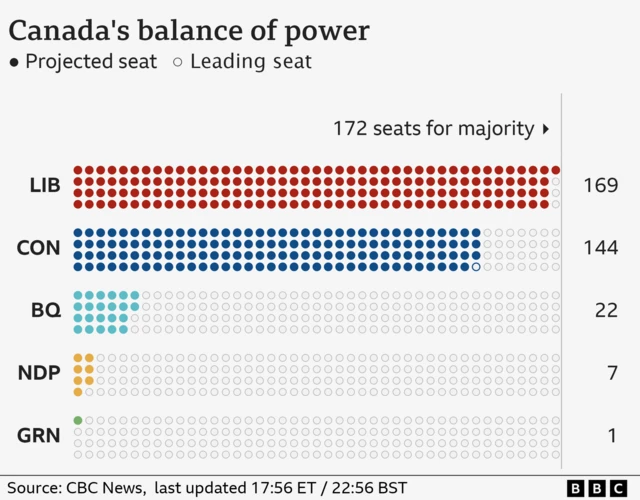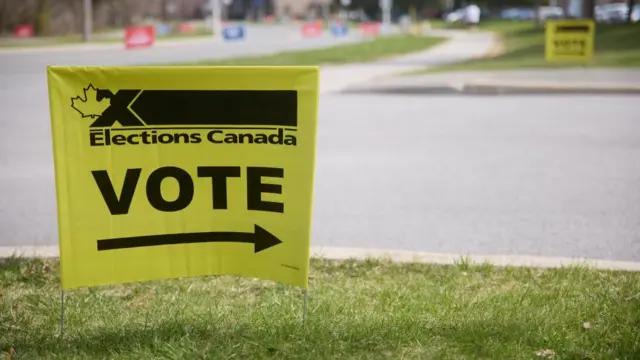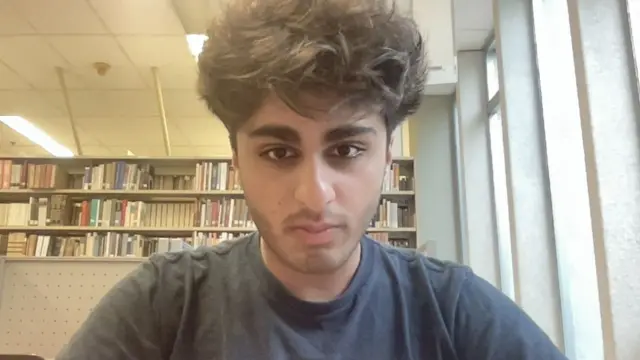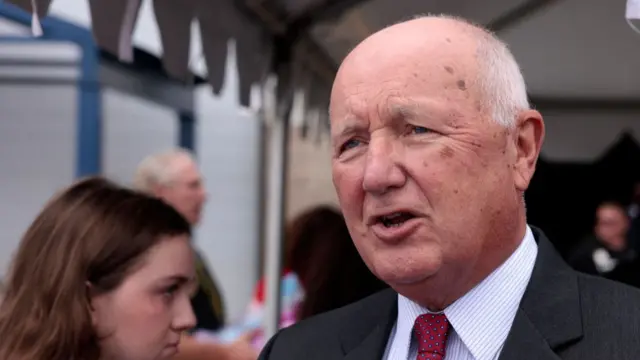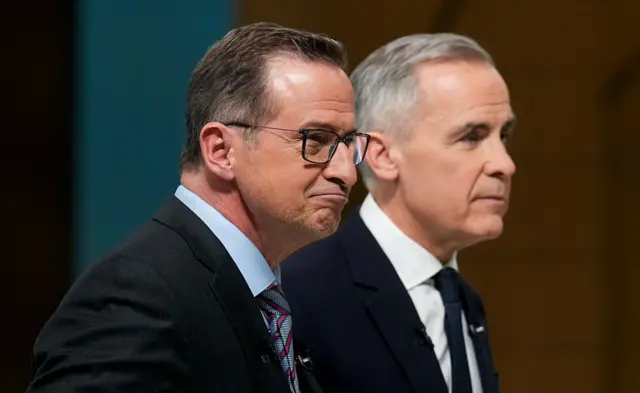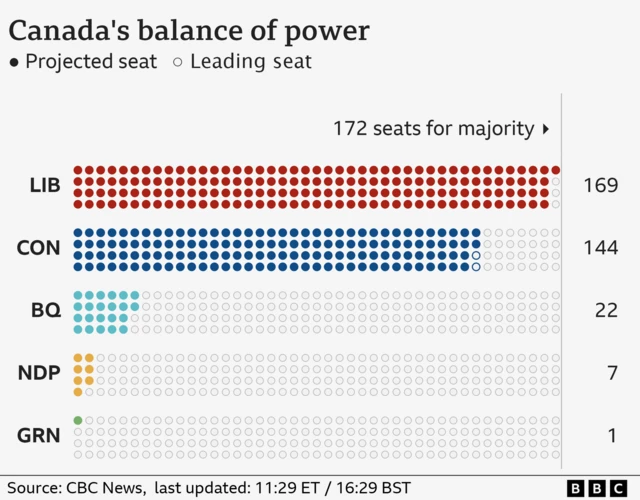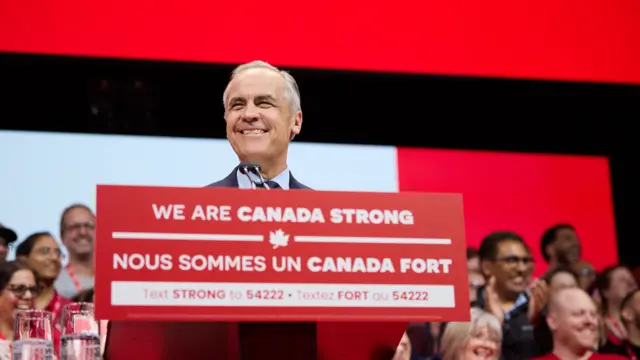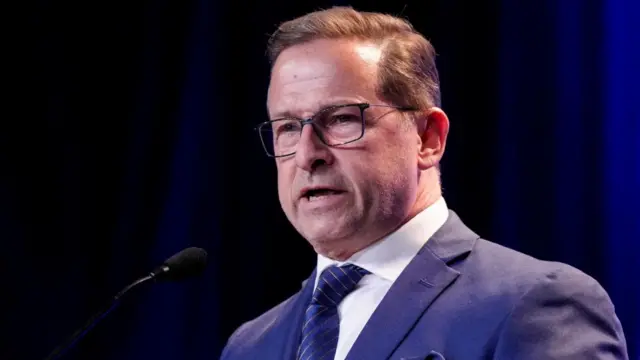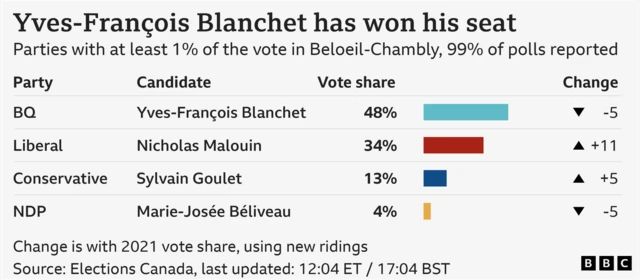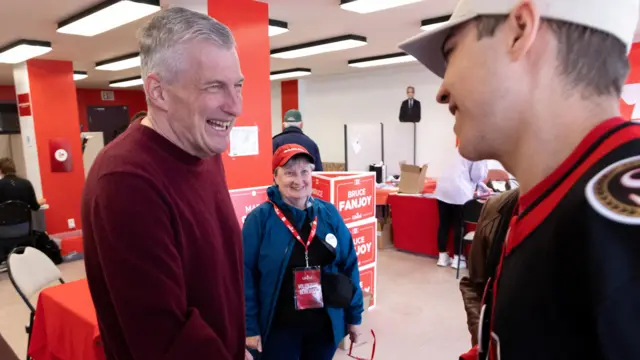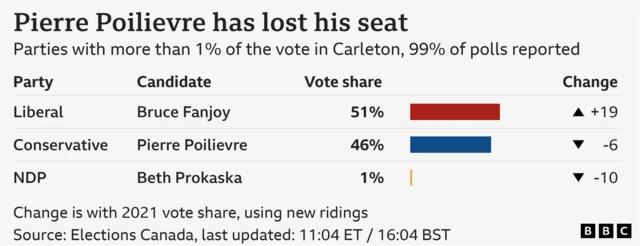Liberal party projected to form minority government as Trump congratulates Carneypublished at 23:14 British Summer Time 29 April
Canada's Prime Minister Mark Carney has spoken to US President Donald Trump the day after his Liberal Party won a fourth consecutive election.
The leaders agreed to meet in person "in the near future", according to a statement from the PM's office.
The Liberals will only form a minority government, however, after falling short of a majority in the House of Commons, according to a projection by public broadcaster CBC.
That means Carney will have to rely on other political parties to pass legislation.
His main rival, Conservative leader Pierre Poilievre, is projected to have lost his own seat. Jagmeet Singh, leader of the New Democratic Party (NDP) was also defeated.
The election was dominated by discussions about Trump and his repeated threat to make Canada the US's "cherished 51st state".
In an exclusive interview with the BBC, Carney said his country deserves respect from the US and will only enter trade and security talks with Trump "on our terms".
We are ending our live coverage but you can stay across the results and fallout from Canada's election on BBC News:
- Canada will deal with Trump 'on our terms', Carney tells BBC
- Faisal Islam: Carney wants to lead a G7 fightback on Trump tariffs
- How Canada voted - in charts
